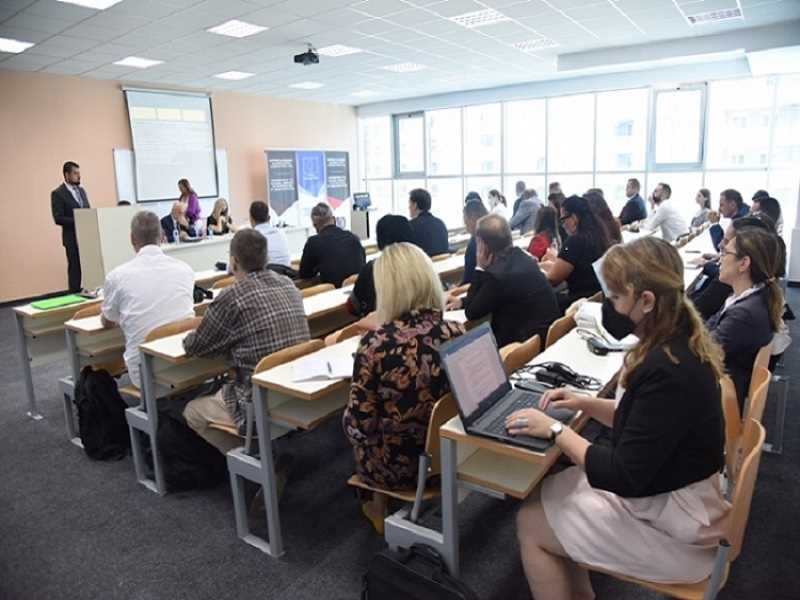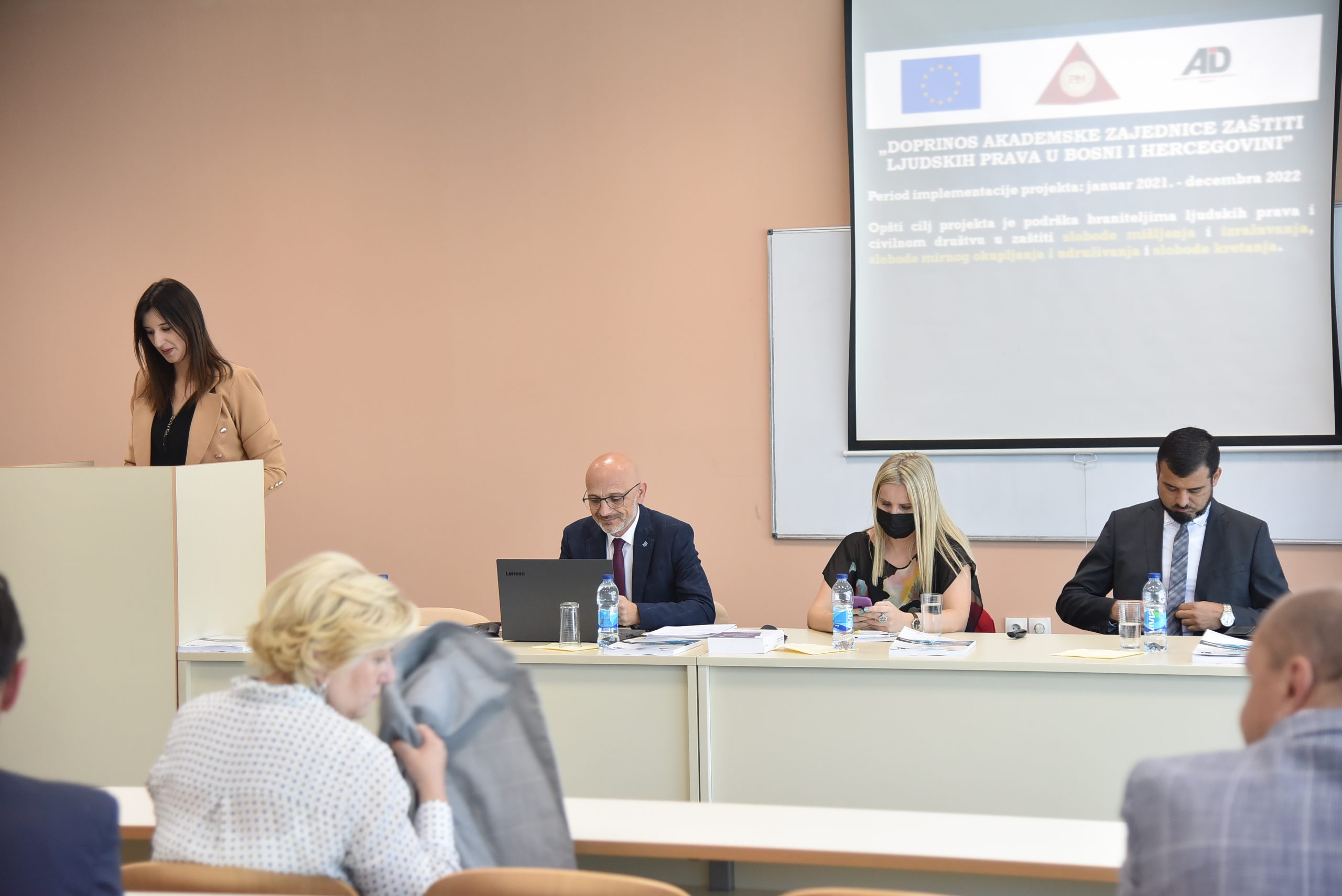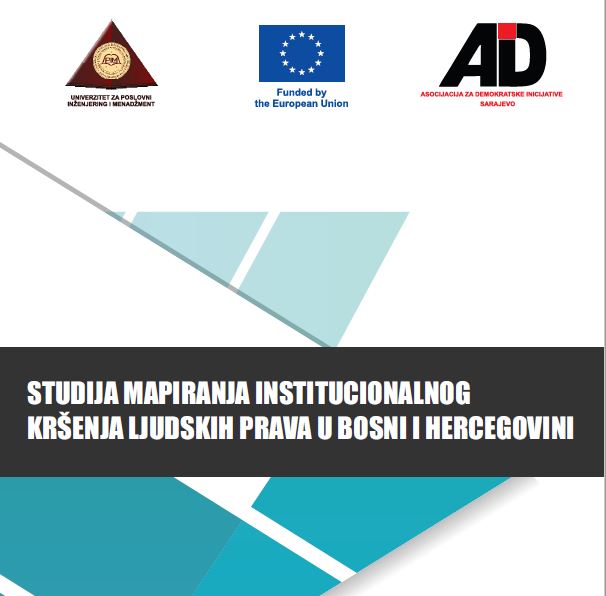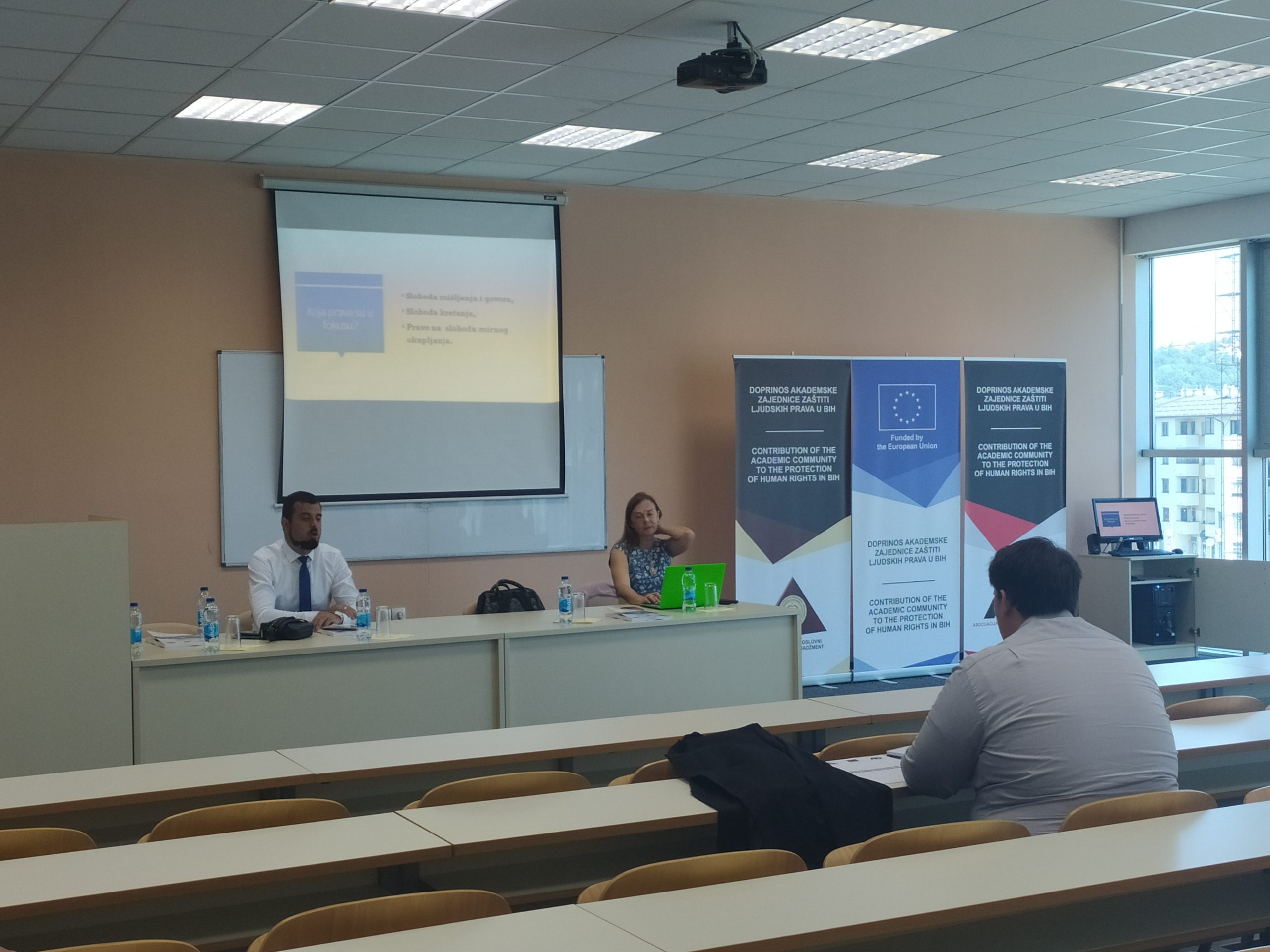Within the project “Contribution of the Academic Community to the Protection of Human Rights in BiH”, implemented by the University of Business Engineering and Management and the Association for Democratic Initiatives, with the financial support of the European Union, on September 14, 2021., in East New Sarajevo, the results of the “Study on Mapping Institutional Violations of Human Rights in Bosnia and Herzegovina” were presented.
Today is the first of five public discussions to be held in Lukavica, then in Banja Luka, Tuzla, Mostar and Brčko District, with the aim of establishing and developing a strategic dialogue between institutions and academic communities, civil society organizations, the media, students and other interested parties, on the issue of improving policies to protect freedom of opinion and information, freedom of peaceful assembly and association and freedom of movement in Bosnia and Herzegovina.
The Study presents a number of provisions of the domestic legal framework that are contrary to European standards and the practice of the European Court of Human Rights, although the Constitution of Bosnia and Herzegovina stipulates that rights and freedoms are provided by the European Convention for the Protection of Human Rights and Fundamental Freedoms and its protocols directly applicable in Bosnia and Herzegovina.
It was especially emphasized that the right to peaceful assembly of a certain number of people in a publicly accessible place, for the purpose of joint expression, is hindered due to prescribing too strict requirements and obligations for organizers of such gatherings, such as the obligation to ensure order, the appointment of organizers, supervisors, etc. and all the way to the limited choice of public areas where the gathering could take place. When it comes to free expression of one’s opinion, violations which sanction public criticism of government bodies are prescribed, which is contrary to European standards and the practice of the European Court of Human Rights. Hence, offenses for spreading the so-called false news are prescribed in a vague and general way, so that it is not entirely clear to the citizens what is allowed and what is not allowed when it comes to presenting untrue content.

The Study identifies a number of problems in the practical conduct of security and judicial institutions when it comes to protecting the right to freedom of peaceful assembly, freedom of opinion and expression, and freedom of movement. These are cases in which force was used by the police to interrupt peaceful protests that were held outside the legal procedure, the use of excessive force against the participants in these protests, the arrest of people who took part in public protests, and their misdemeanor punishment. A certain number of unfounded punishment of citizens and unfounded initiation of misdemeanor proceedings for actions that are not subject to misdemeanor liability were recorded. An example of such action is the punishment of citizens who expressed their criticism of the authorities through social networks, for which they were fined for spreading false news and causing panic in connection with the COVID-19 pandemic.
The right to freedom of expression is extremely important in a society as a whole, as it is a basic precondition of a democratic society. Without freedom of assembly and association, as well as freedom of movement, it is not possible to enjoy democratic rights and participate in public life and community governance. The European Court of Human Rights shows the importance of press freedom, which is also crucial for the concept of a democratic society. The obligation of the media is to transmit information and ideas with which the public has the right to be acquainted. Any illegal and unreasonable restriction on the freedom to receive and “spread” information and ideas, prevents the press or the media from playing the “key role of a public guard-dog”. However, according to European standards, the right to freedom of expression also implies responsibilities as they may be in conflict with other rights of individuals or violate those rights, for example, the right to privacy. In this regard, Article 10, paragraph 2 of the European Convention allows restrictions to be placed on this right in certain defined circumstances. Freedom of expression is contained and achieved through freedom of peaceful assembly and association, so this right is conventionally regulated in a way that includes duties and responsibilities. This is explained by the fact that greater interference with the right to freedom of expression than any other right is allowed. The European Court interprets this in the way that some persons, according to their position in society, may be exposed to greater interference than others. For instance, soldiers, police officers or civil servants are in positions that are closely related to the state and therefore, on that basis, may be subject to greater interference with the right to expression than other persons.
The Study is available here.



